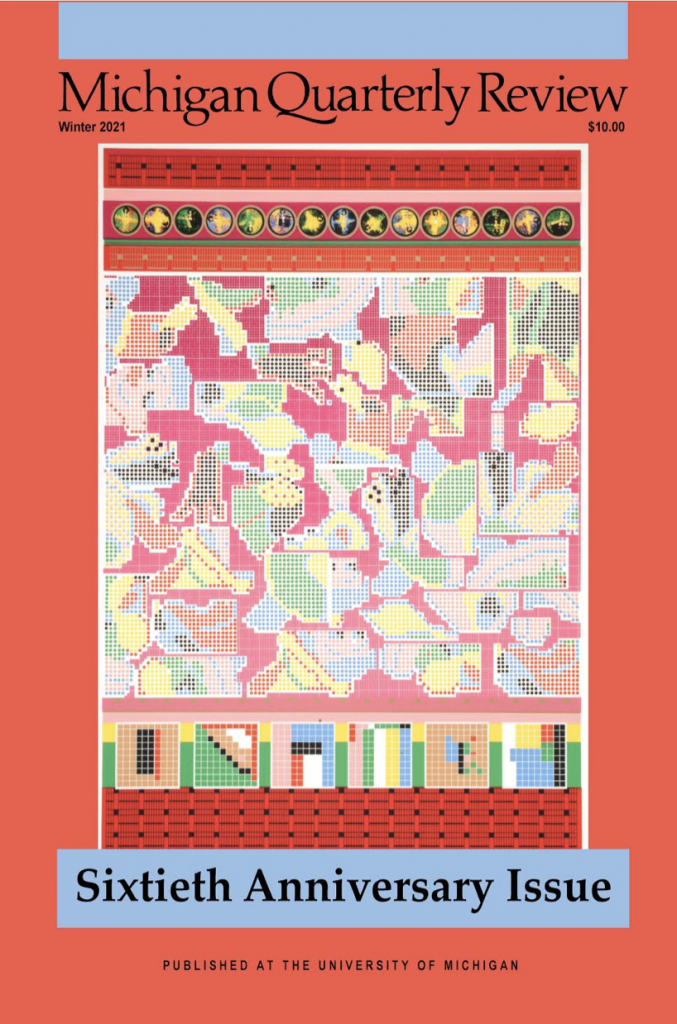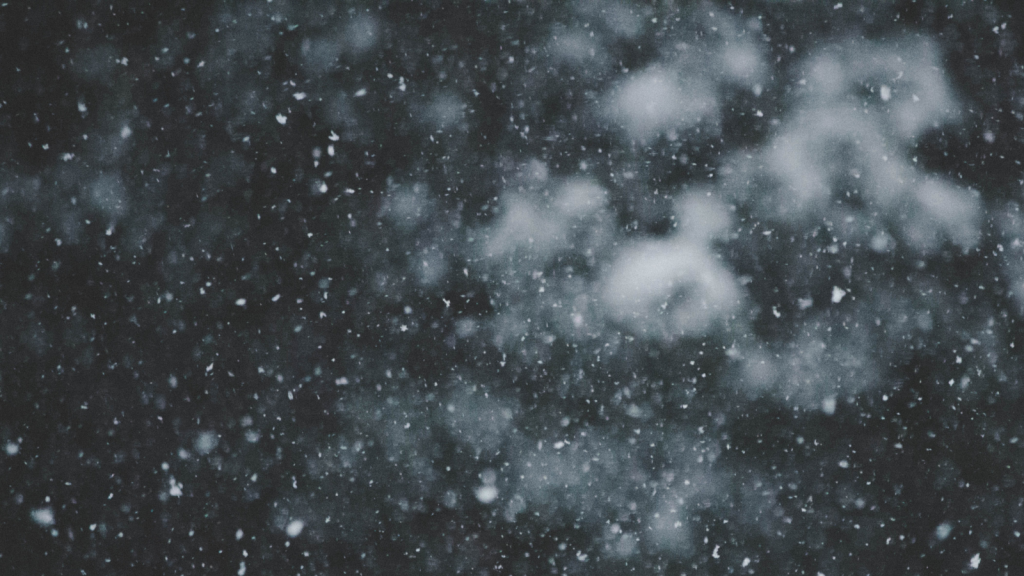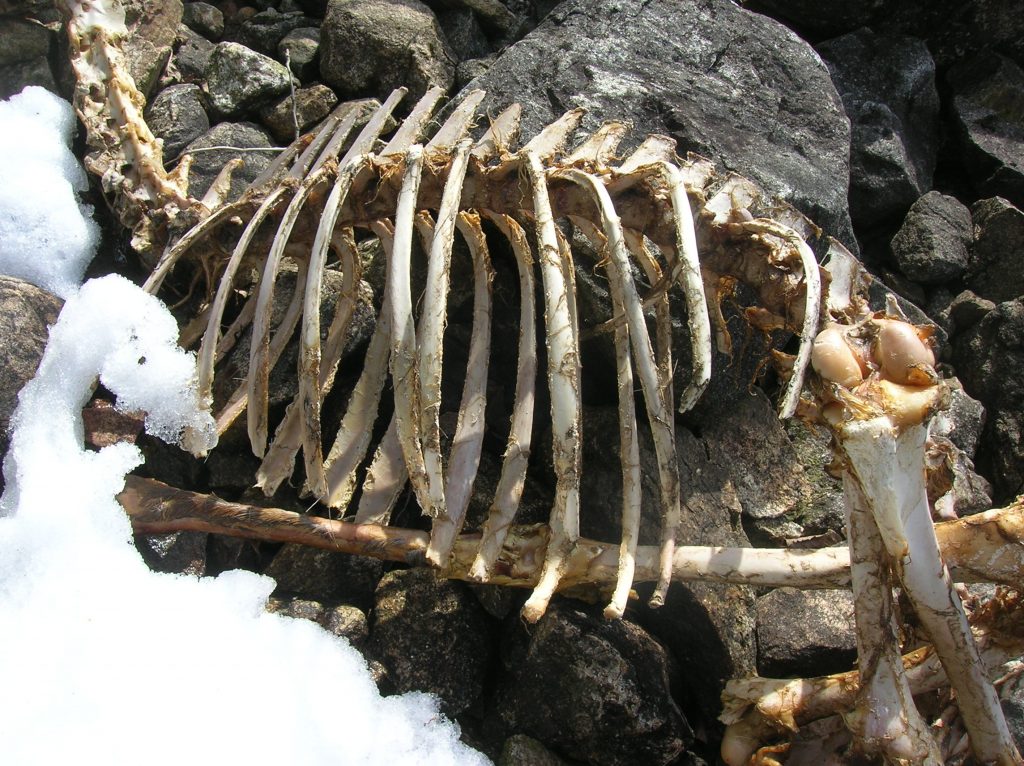Hit play below to hear Jacques J. Rancourt read his poem “Backyard Rock” and scroll down for the full text. “Backyard Rock“ is featured in MQR’s Winter 2021 Issue.
Backyard Rock
It’s 1999, the year I learned to float by filling my body
with questions. Swimming at night with my father
was the first time
since the fog of childhood I’d seen
a man naked. The lake thickened with bloodsuckers,
the moon a sliver in the sky—
uncut, tucked within
a hood of skin, unlike mine, his tip the backyard rock
split in three. Think of Ham
who too saw the nakedness
of his father. Think of God enlarging Japheth. It was both
what I did
and did not want. How I understood myself
afterwards uneasily as my own dim reflection, uselessly
as my shadow
cast at night.
*
It happened, I’m told, because water trickled down
a crack and froze,
expanded and split apart this rock
or boulder, whenever a rock becomes a boulder,
in millimeters, then inches,
then feet. I walk through
these paths between stones, and on one side
where it indents,
the other extends, so that one could
push them back together again
if one were God.
On the northern cut, my fire glows and the ice on the trees
rears up around me like a question, like a knife.
*
I’ve summoned the hair I know exists inside to sprout
across my chest like his, I’ve culled the same slate rocks
and still my body, newly unbuilt and barren.
My father and I share our name
yet he goes by Jack.
I want to believe we’re tied to the same chicken wire
but here I am—here we are—
the earth undigging its graves,
the clouds wringing out their water. The day I convinced
a squirrel to eat from my hand, its tiny nail-feet sticky
with sap, I could have
if I was that kind of person
snapped its leg simply by closing my fist. Could have
even if I wasn’t.
*
Walking at night in winter, I’m headed away
from an encounter with someone I’ve met on the internet.
When he asks for a name,
I give him Jack. My father,
drunk and lolling in a hammock, once told me
his first time was with an older woman
and three other boys. I mull this over by way of ice.
Bed, breed, burrow:
two mammals leap in
and out an old fishing hole. I step closer;
the frozen lake protests.
Too small to be beavers,
too large to be muskrats, they leap in and out.
I step closer; the frozen lake, a dark marble,
clouded and cracked,
protests. It’s not a fishing hole,
I realize, but the edge of ice—beyond them
black open water—and for once in my life I can measure
how close I stand
to the periphery of danger.
*
Out on the frozen lake stripped pale as a face,
out where the ice heaves
beneath me, a groan
or a snap, and at five inches deep I know it will hold
I know it will
even if my knees—the sweat pilling
my fleece—does not,
out in the sun-lock, the ice-blister
of the day, out where I watch the trap I’ve set
sit and stay,
drawn low below me while trout
tangle under the ice in a diamond of a dance,
out where my father had stood, his boot-prints glazed
by snow and rain,
out where his traps snapped up
at once, a fish’s frenzy to yank down the cords,
to impale their flap-cheeks on the barbs
and feel that sting,
that pull into air, their blood
patterning the snow in scales, I understand
I am not my father,
not earlier today by the woodshed,
by his fell, sailing an axe over my shoulder
and into the block of wood
where it plants, shakes loose,
the log still standing solid, unsplit, and whole:
I try to understand how
if I hack and hack,
it will come apart in pieces, strips, first bark and slivers,
but eventually, as it must, it will halve
and halve again.

You can find Jacques J. Rancourt’s “Backyard Rock” in our Winter 2021 Issue. You can purchase it here.



